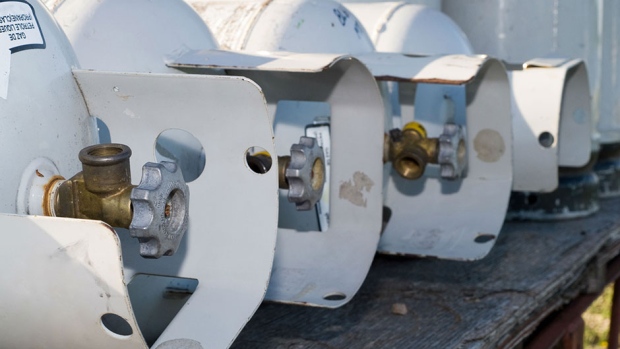Nov 30, 2017
Pembina Pipeline approves construction of $260M propane export facility
The Canadian Press

CALGARY - Pembina Pipeline Corp. (PPL.TO) says its board of directors has approved construction of an export terminal at Prince Rupert, B.C., to be used to send liquefied Western Canadian propane to markets in Asia and Central America.
The Calgary-based company says the project on Watson Island is expected to cost about $260 million, up from an estimate of $150 million made last spring, due to minor scope changes, dock maintenance and additional site preparation.
Pembina's facility, which still requires regulatory and environmental approvals, is expected to be in service by mid-2020 and will have a permitted capacity of about 25,000 barrels per day of propane.
Meanwhile, construction is underway on a terminal on Ridley Island near Prince Rupert that was green-lighted early this year by Calgary-based AltaGas Ltd. (ALA.TO).
The project, which its builder says will be the first propane export terminal on Canada's West Coast, is expected to cost $475 million and have capacity of 1.2 million tonnes per year when it opens in 2019.
Both facilities are to use rail cars, not pipelines, to transport propane from Alberta and B.C. to their facilities.


